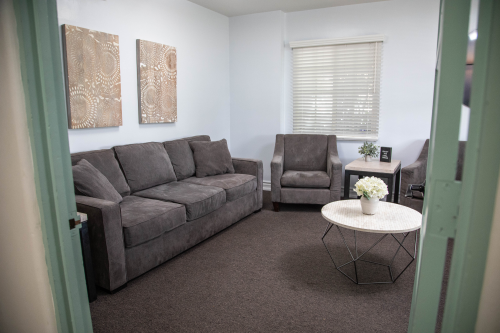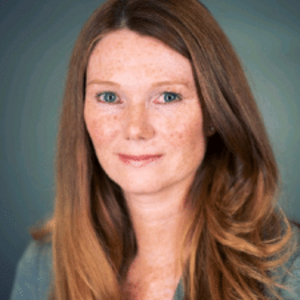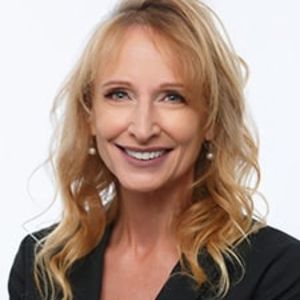






Clearview Treatment Programs
Verified Center
This provider's information has been quality-checked by Recovery.com's Research Team for accuracy and completeness, including center verification through appropriate third-party organizations.
Treatment Focus
This center treats substance use disorders and mental health conditions. You'll receive individualized care catered to your unique situation and diagnosis, learn practical skills for recovery, and make new connections in a restorative environment.
Primary Level of Care
Offering intensive care with 24/7 monitoring, residential treatment is typically 30 days and can cover multiple levels of care. Length can range from 14 to 90 days typically.
Treatment Focus
This center treats substance use disorders and mental health conditions. You'll receive individualized care catered to your unique situation and diagnosis, learn practical skills for recovery, and make new connections in a restorative environment.
Primary Level of Care
Offering intensive care with 24/7 monitoring, residential treatment is typically 30 days and can cover multiple levels of care. Length can range from 14 to 90 days typically.
Provider's Policy
All Clearview residential programs are in-network with Anthem Blue Cross and Kaiser and have negotiated rate agreements with First Health and Multiplan PPO policies. Additionally, their residential dual diagnosis program is in-network with Health Net. In addition to the policies listed above, Clearview also works with Quest Behavioral Health.
Clearview Treatment Programs
Clearview Treatment Programs
About Clearview Treatment Programs
Clearview Treatment Programs offers multiple levels of care to treat addiction and mental health conditions. They provide residential treatment, partial hospitalization (PHP), intensive outpatient (IOP), outpatient, and women’s-only residential treatment for psychiatric disorders like borderline personality disorder (BPD). Clearview Treatment Programs uses evidence-based, research-backed treatment to help each client recover from addiction, trauma, and mental health conditions.
Comprehensive Treatment Opportunities
Clearview Treatment Programs can help clients heal from addiction, depression, anxiety, disordered eating, codependency, personality disorders, BPD, trauma, and post-traumatic stress disorder (PTSD). They offer daily 12-Step meetings, family therapy and psychoeducation, and a unique 5-week family skills course on dialectical behavioral therapy (DBT). Clients take frequent trips into the community to volunteer, shop, or enjoy outdoor activities.
Personalized Recovery
Clearview Treatment Programs tailors treatment to the diagnosis of each client, helping treatment match their unique needs. They provide detox services to help clients transition into residential treatment, which lasts 30 days. Throughout their stay, clients meet with their therapist 1:1 every week, with group and family therapies taking place each day. Clearview Treatment Programs offers DBT, cognitive behavioral therapy (CBT), acceptance and commitment therapy (ACT), seeking safety groups, and prolonged exposure therapy (PET) for clients with trauma and PTSD.
Women-Only Mental Health Program
Clearview Treatment Programs offers a specialized residential program for women with BPD and other mental health conditions. They use dialectical behavioral therapy (DBT), with each therapist and clinician specially trained in DBT. Their women’s-only program helps women heal from emotional dysregulation, dissociative disorders, and self harm in a safe setting. Women receive life coaching and can try pottery, yoga, and art therapy.

Highlights from the Center
Highlights
These highlights are provided by and paid for by the center.
Joint Commission Accredited
Co-Occurring Disorders Treatment
Certified Professionals
20+ Years in Business
Center Overview
Treatment Focus
This center treats substance use disorders and mental health conditions. You'll receive individualized care catered to your unique situation and diagnosis, learn practical skills for recovery, and make new connections in a restorative environment.
Joint Commission Accredited
The Joint Commission accreditation is a voluntary, objective process that evaluates and accredits healthcare organizations (like treatment centers) based on performance standards designed to improve quality and safety for patients. To be accredited means the treatment center has been found to meet the Commission's standards for quality and safety in patient care.

Insurance Accepted
Cash Pay Rates
Estimated Cash Pay Rate
Center pricing can vary based on program and length of stay. Contact the center for more information. Recovery.com strives for price transparency so you can make an informed decision.
Luxury rehab centers offer a unique blend of luxurious amenities and high-quality treatment. From private suites to gourmet dining, personal trainers to spa treatments, these facilities provide a high level of comfort and discretion.

Meet Your Care Team

Angel Piper
Group CEO
MSW, LCSW

Anna Ciulla
CEO
LMHC, LCPC, LPCC, LPC, RD, LD

Brian Benjamin
Medical Director
DO

Charlie Swenson
DBT Trainer & Program Consultant
MD

Selene Cervantes
Director of Clinical Services
MS, LMFT

Leilani Le
Director of Operations




Levels of Care








Your Care Options
Specializations
Personality Disorders
Personality disorders destabilize the way a person thinks, feels, and behaves. If untreated, they can undermine relationships and lead to severe distress.
Drug Addiction
Drug addiction is the excessive and repetitive use of substances, despite harmful consequences to a person's life, health, and relationships.
Post Traumatic Stress Disorder
PTSD is a long-term mental health issue caused by a disturbing event or events. Symptoms include anxiety, dissociation, flashbacks, and intrusive thoughts.
Self-Harm
The act of intentionally harming oneself, also called self-injury, is associated with mental health issues like depression.
Suicidality
With suicidality, a person fantasizes about suicide, or makes a plan to carry it out. This is a serious mental health symptom.
Who We Treat
Young Adults
Emerging adults ages 18-25 receive treatment catered to the unique challenges of early adulthood, like college, risky behaviors, and vocational struggles.
LGBTQ+
Addiction and mental illnesses in the LGBTQ+ community must be treated with an affirming, safe, and relevant approach, which many centers provide.
Midlife Adults
For adults ages 40+, treatment shifts to focus on the unique challenges, blocks, and risk factors of their age group, and unites peers in a similar community.
Approaches
Evidence-Based
A combination of scientifically rooted therapies and treatments make up evidence-based care, defined by their measured and proven results.
Holistic
A non-medicinal, wellness-focused approach that aims to align the mind, body, and spirit for deep and lasting healing.
Individual Treatment
Individual care meets the needs of each patient, using personalized treatment to provide them the most relevant care and greatest chance of success.
Medical
Medical addiction treatment uses approved medications to manage withdrawals and cravings, and to treat contributing mental health conditions.
Therapies
1-on-1 Counseling
Patient and therapist meet 1-on-1 to work through difficult emotions and behavioral challenges in a personal, private setting.
Meditation & Mindfulness
A practiced state of mind that brings patients to the present. It allows them to become fully aware of themselves, their feelings, and the present moment.
Art Therapy
Visual art invites patients to examine the emotions within their work, focusing on the process of creativity and its gentle therapeutic power.
Motivational Interviewing and Enhancement Therapy (MET)
This approach is based on idea that motivation to change comes from within. Providers use a conversational framework that may help you commit to recovery.
Relapse Prevention Counseling
Relapse prevention counselors teach patients to recognize the signs of relapse and reduce their risk.
Seeking Safety
Not looking to the past, patients improve their present circumstances. They work toward safety without detailing traumatic events.
Acceptance and Commitment Therapy (ACT)
This cognitive behavioral therapy teaches patients to accept challenging feelings and make the appropriate changes to reach personal goals.
Conditions We Treat
Grief and Loss
Grief is a natural reaction to loss, but severe grief can interfere with your ability to function. You can get treatment for this condition.
Personality Disorders
Personality disorders destabilize the way a person thinks, feels, and behaves. If untreated, they can undermine relationships and lead to severe distress.
ADHD, ADD
ADHD is a common mental health condition caused by dopamine imbalance. Common symptoms include inattention, hyperactivitiy, and impulsivity.
Anger
Although anger itself isn't a disorder, it can get out of hand. If this feeling interferes with your relationships and daily functioning, treatment can help.
Anxiety
Anxiety is a common mental health condition that can include excessive worry, panic attacks, physical tension, and increased blood pressure.
Bipolar
This mental health condition is characterized by extreme mood swings between depression, mania, and remission.
Burnout
Burnout entails mental and physical exhaustion, and leads to a severe lack of fulfillment. This condition is often caused by overwork.
Chronic Pain Management
Long-term physical pain can have an affect on mental health. Without support, it can also impact your daily life and even lead to addiction.
Codependency
Codependency is a pattern of emotional dependence and controlling behavior. It's most common among people with addicted loved ones.
Substances We Treat
Alcohol
Using alcohol as a coping mechanism, or drinking excessively throughout the week, signals an alcohol use disorder.
Benzodiazepines
Benzodiazepines are prescribed to treat anxiety and sleep issues. They are highly habit forming, and their abuse can cause mood changes and poor judgement.
Chronic Relapse
Consistent relapse occurs repeatedly, after partial recovery from addiction. This condition requires long-term treatment.
Co-Occurring Disorders
A person with multiple mental health diagnoses, such as addiction and depression, has co-occurring disorders also called dual diagnosis.
Cocaine
Cocaine is a stimulant with euphoric effects. Agitation, muscle ticks, psychosis, and heart issues are common symptoms of cocaine abuse.
Drug Addiction
Drug addiction is the excessive and repetitive use of substances, despite harmful consequences to a person's life, health, and relationships.
Ecstasy
Ecstasy is a stimulant that causes intense euphoria and heightened awareness. Abuse of this drug can trigger depression, insomnia, and memory problems.
Heroin
Heroin is a highly addictive and illegal opioid. It can cause insomnia, collapsed veins, heart issues, and additional mental health issues.
Psychedelics
Hallucinogenic drugs—like LSD—cause euphoria and increased sensory experiences. When abused, they can lead to depression and psychosis.
Languages
Aftercare
Care Designed for Your Needs
Personal Amenities
Amenities
Special Considerations
Gender-specific groups
Patients in gender-specific groups gain the opportunity to discuss challenges unique to their gender in a comfortable, safe setting conducive to healing.
Activities
Yoga
Yoga is both a physical and spiritual practice. It includes a flow of movement, breathing techniques, and meditation.
Off-Site Activities
Off-Site Amenities

What people are saying
Treatment
4.8
Accommodations
4.9
Food & Nutrition
4.8
Value
4.8
Pros
- Easy to Work With (4)
- Cares About Client (4)
- Communicates Client's Progress (3)
- Quality Programming (3)
Kelly
Reviewed 05/05/23
Referring Professional
•Executive Director
Michelle R
Reviewed 05/05/23
Referring Professional
•Therapist
Lesley H
Reviewed 05/08/23
Referring Professional
•Clinical Outreach
Taylor P
Reviewed 05/06/23
Referring Professional
•Clinical Outreach
Jordan
Reviewed 05/05/23
Referring Professional
•Chief Development Officer





